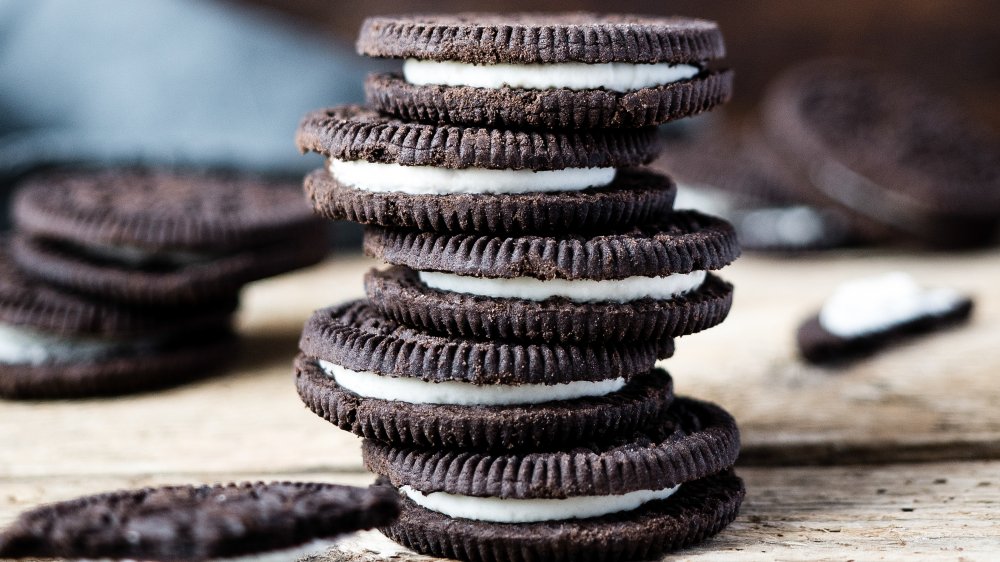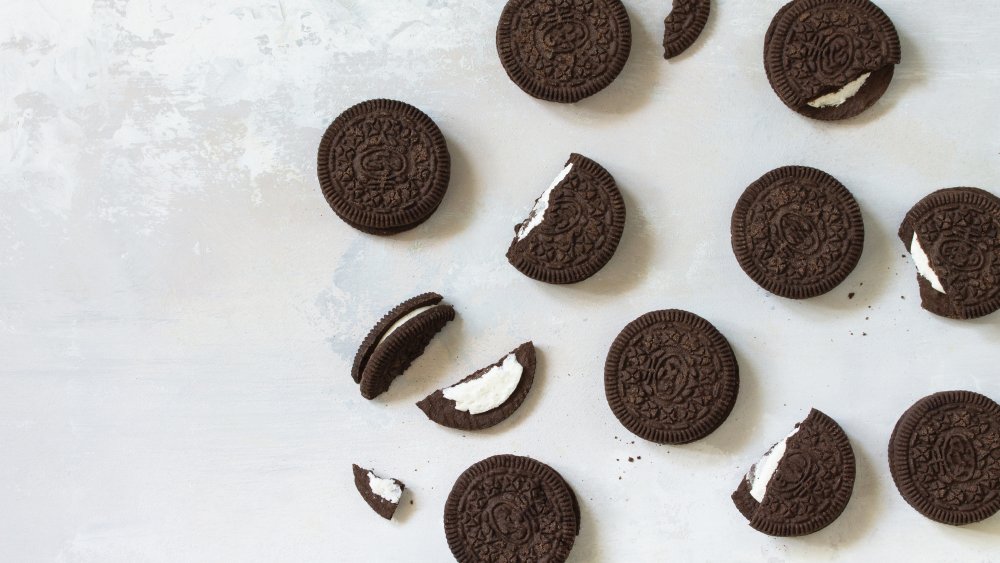The Truth Behind How Oreo Cookies Got Their Name
While we know a lot about "Milk's Favorite Cookie" — its uncanny addictiveness, its world domination, its gimmicky seasonal flavors, even an ability to reveal your true personality (Twist? Lick? Dunk?) — one deep, dark and chocolatey mystery remains: the true origin of Oreo's iconic name.
The one thing we know for sure is that Oreos were conceived of in 1912 at the National Biscuit Company (Na-Bis-Co) — as a competitor to the then-popular Hydrox cookie, made by Sunshine Biscuits (via CNN Money). But the brand, now owned by Mondelez International, has kept Oreo's origin story close to the chest. Its naming history is notably absent from both its FAQ page and brand history, and in keeping with the cookie's fanatic following, which continues to confuse people the world over — such as this Redditor in Germany — theories abound.
The speculation over Oreo's name origins is almost as complex as the corporate battles that made the crispy-creamy chocolate-vanilla cookie popular in the first place. Some say the name Oreo came from the French word for "gold" ("or") because the original cookie came in mostly gold packaging (via Serious Eats). Others speculate that the name was simply easy to remember (via Rewind & Capture), or even that — and this one's a stretch — the cookie-shaped "O's" on either end sandwich the "-RE" part of "cREam."
Oreo's name could come from plants, gold, or simple wordplay
The most likely theory, posited by Stella Parks in an excerpt from book BraveTart: Iconic American Desserts, on Serious Eats, is that the name was just one in a string of product names that reference various plants. In 1913, Nabisco's offerings included Avena, Lotus, Helicon, Zephyrette, Zaytona, Anola, Ramona, and Oreo. Avena means "oats" in Latin and "Lotus" — duh. Helicon matches with Heliconia, a type of flower found in Florida, and Zaytona is close to "zaytuna," which means "olive" in Arabic — you get the picture.
"Someone at Nabisco clearly had a thing for botany, and to understand Oreo, you don't have to look any further than the mountain laurel on every Hydrox—Oreodaphne," she writes. Turns out Oreo, the knockoff of a cookie whose name sounds like a combo weight loss pill/toilet cleaner — pilfered more than their rival's flavor. They may have taken their name from its popular floral look.
We might never know the truth about America's favorite cookie, which is also the most popular in the world, unsurprisingly (via Mondelez International). Either way, we'll have another one, please.

